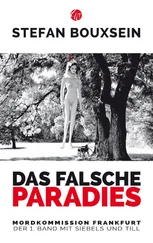Stefan Bachman - The Peculiar
Здесь есть возможность читать онлайн «Stefan Bachman - The Peculiar» весь текст электронной книги совершенно бесплатно (целиком полную версию без сокращений). В некоторых случаях можно слушать аудио, скачать через торрент в формате fb2 и присутствует краткое содержание. Жанр: Фэнтези, Детективная фантастика, на английском языке. Описание произведения, (предисловие) а так же отзывы посетителей доступны на портале библиотеки ЛибКат.
- Название:The Peculiar
- Автор:
- Жанр:
- Год:неизвестен
- ISBN:нет данных
- Рейтинг книги:5 / 5. Голосов: 1
-
Избранное:Добавить в избранное
- Отзывы:
-
Ваша оценка:
- 100
- 1
- 2
- 3
- 4
- 5
The Peculiar: краткое содержание, описание и аннотация
Предлагаем к чтению аннотацию, описание, краткое содержание или предисловие (зависит от того, что написал сам автор книги «The Peculiar»). Если вы не нашли необходимую информацию о книге — напишите в комментариях, мы постараемся отыскать её.
The Peculiar — читать онлайн бесплатно полную книгу (весь текст) целиком
Ниже представлен текст книги, разбитый по страницам. Система сохранения места последней прочитанной страницы, позволяет с удобством читать онлайн бесплатно книгу «The Peculiar», без необходимости каждый раз заново искать на чём Вы остановились. Поставьте закладку, и сможете в любой момент перейти на страницу, на которой закончили чтение.
Интервал:
Закладка:
Mr. Jelliby nodded and glanced at the surrounding country, running his hatband around and around through his fingers. “Don’t speak of us to anyone, will you? And if we’re not back by dawn you may assume that. . that we’ve found another way. Good night.”
The driver grunted and cracked his whip. The grasshoppers broke into a run and the stagecoach thundered away down the road. Bartholomew watched it go, shivering.
Mr. Jelliby consulted his compass. Then they set out across a wet green field. A thin mist hovered over the grass, soaking their trousers to the knee. Before long it began to drizzle. Bartholomew’s head buzzed with sleepiness and Mr. Jelliby was limping, but neither of them said anything. On and on they walked, through field after field, over hills and trickling brooks until there was not a muscle in their bodies that did not ache.
Mr. Jelliby heaved himself over a low stone wall, one eye still locked on the compass. “We ought to be getting there shortly,” he said, and brushed the dirt from his knees. “Wherever ‘there’ is. . ”
“There,” as it turned out, was a knot of trees in the middle of a wide empty field. It was not a forest. It might have been a forest once, when there were still forests in these parts, but all its arms and legs had been cut down, and now it was simply a great clump of oak and elm rising out of the rolling grass. Mr. Jelliby paused at its edge, staring up into the vaulting branches. Then he walked in, Bartholomew close behind him.
The air under the trees was damp, but not like in the fields. It was a musty, living damp, heavy with the smell of bark and wet earth. Moss blanketed the ground, and although the trees grew very close together, it was not difficult to walk. After no more than twenty paces, they found themselves in a small clearing. The rain rustled down, and the grass grew tall here. A heap of charred sticks sizzled under the water droplets. And in the center of the clearing, cheery and welcoming as could be, stood a round-topped wooden wagon. It was painted red, with yellow daffodils and primroses on the door and round the spokes of the wheels. Smoke curled up from a tin funnel on its roof. A single window looked out of its side, and scarlet curtains were drawn across the inside of the panes. Warm light shown through them, casting glowing squares on the grass.
Bartholomew and Mr. Jelliby looked around them uncertainly. There were no monstrous contraptions here, no small graves, or black-winged sylphs whispering in the branches. What could Mr. Lickerish possibly be interested in here, that his bird should fly all this way? Bartholomew hoped, desperately hoped, that Hettie was in that painted wagon. He felt suddenly incredibly impatient.
Mr. Jelliby climbed the steps to the door at the back of the wagon and knocked twice. “Hullo!” he called, in what he hoped was a commanding voice. “Who lives here? We must speak with you!”
Something smashed inside. A quick, sharp smash, as if someone had just had a dreadful fright and let a cup or a bowl slip straight from her hands. “Oh, no. Oh no, oh no, oh no,” a frail voice cried. “Please go away. Go away. I have no money. No money anywhere.”
Mr. Jelliby glanced at Bartholomew, but he didn’t look back. He was watching the door intently.
“Madam, I assure you we do not want any money,” Mr. Jelliby said. “I received your address from one Xerxes Ya- From a mutual acquaintance. And I need to speak to you. Madam? Are you all right in there?”
A small shutter snapped open in the door, and a face appeared. Mr. Jelliby stumbled back. It was a gray, wrinkled face framed by a shower of wispy birch branches. An old faery woman.
“You’re not from the Faery Bureau Inspectors, are you?” she asked. “Or the Court of Thorns? Or the government ?”
“I’m-well, I’m from England,” Mr. Jelliby answered stupidly.
The faery woman gave a nervous laugh and unbolted the door. “Oh. I’m not. Let’s get you out of the rain, then, shall we? Unless you like the rain, of course. Some folks do. It’s good for selkies, heals boils on nymphs, though I’ve never known it to do anything for- Oh!” Her hands went to her mouth when she saw Bartholomew. “Oh, the poor little Peculiar! He’s thin as a fish bone!”
Bartholomew tried to peer around the faery, into her wagon. Then he looked at her. Poor little Peculiar? There was no disgust in her voice, none of the fright of the goblin in the bazaar, or the petty evil of the peddler in Old Crow Alley. She sounded more alarmed by his resemblance to a fish than the fact that he was a changeling.
Yes, well, we don’t have to eat him with parsnips, now do we, Mr. Jelliby thought, as the faery woman ushered them into the wagon. It was tiny inside, cramped and warm, and cluttered with parchments and bottles in pretty colors. Bundles of herbs hung from the ceiling. Candles dripped in fantastical shapes down the shelves. The wagon was too small to hide anyone, and Hettie wasn’t there.
The old faery busied herself with sweeping up the shards of a pottery bowl from the floor. “Oh, such a mess,” she whined. “Don’t get many visitors, I don’t. Not good ones anyway.” Her voice was creaky and old, a bit like the faery butler’s. Friendlier, though. Perhaps too friendly for one who has just had her far-off clearing invaded by strangers.
“Madam, we’ve come on a matter of great importance,” Mr. Jelliby said.
“Have you, at that?” She tipped the shards into a cat dish. It was full of milk. “And how comes it that an old greenwitch like me can help such good sirs as you? Are you sick? Has the cholera gotten one of you? I hear he is quite busy in London now.”
Mr. Jelliby stamped the wet from his shoes and took off his hat. He? “No, not cholera. We need to speak to you about someone.”
The faery straightened, joints popping, and hurried a teakettle to the stove in the corner. “Don’t know many someones anymore. Who might it be?”
“The Lord Chancellor. John Lickerish.”
The old faery almost dropped the kettle. She wheeled around to face them. “Oh,” she whispered, eyes quivering. “Oh, I meant no harm. Whatever he’s done, whatever he’s doing, I meant no harm.”
Mr. Jelliby’s hand fell to the grip of his pistol. “We’re not here to accuse you, madam,” he said quietly. “We need your help. We have reasonable proof that you are connected to Mr. Lickerish, and we must know why. Please, we must know!”
The faery knotted her hands into her apron and began pacing to and fro, the floor of the wagon creaking with each step. “I don’t know him. Barely at all. It’s not my fault!” She stopped to face them. “You won’t take me away, will you? Not to the cities and their horrid fumes? Oh, I would perish! ”
“Please, madam, calm yourself. We’re not taking you anywhere. We simply need you to tell us things. Everything.”
The faery’s eyes flicked to the pistols. She looked from Mr. Jelliby to them and back. Then she returned to the stove. Tea hissed as she poured it into blue china cups. “Everything. .” she said. “You’d be dead of old age before I was halfway through.” She brought the tea and slumped into her rocker.
Bartholomew didn’t take his cup. Hettie isn’t here. Nothing was here but a mad old faery. They should be leaving, running back across the fields to the coachman and Leeds. Not drinking tea. He tugged at Mr. Jelliby’s sleeve, opened his mouth to say something, but the faery saw him and spoke first.
“Life’s hard out here,” she said, and her voice was petulant. “Folks in the cities, they work in factories, always among the engines and the church bells and the iron. And they lose their magic. I couldn’t do that. Out here I can hold on to bits of it. Just little shreds. It’s not like home. Not really. But it’s almost there. It’s as close as I can get.” Bartholomew knew she was talking of her home in the Old Country. She must be very old indeed.
Читать дальшеИнтервал:
Закладка:
Похожие книги на «The Peculiar»
Представляем Вашему вниманию похожие книги на «The Peculiar» списком для выбора. Мы отобрали схожую по названию и смыслу литературу в надежде предоставить читателям больше вариантов отыскать новые, интересные, ещё непрочитанные произведения.
Обсуждение, отзывы о книге «The Peculiar» и просто собственные мнения читателей. Оставьте ваши комментарии, напишите, что Вы думаете о произведении, его смысле или главных героях. Укажите что конкретно понравилось, а что нет, и почему Вы так считаете.












